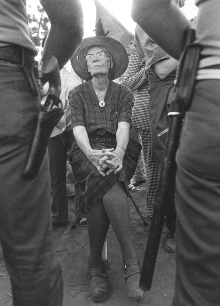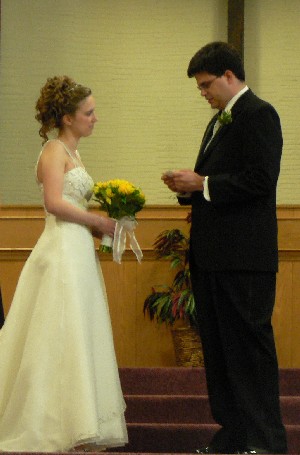He made sure that justice and help were given to the poor and needy, and everything went well for him. Isn’t that what it means to know me?” asks the LORD. -Jeremiah
For me, this utterance by the weeping prophet puts cement into the notion of knowing God. It puts concrete into the notion of spirituality.
 |
How can we measure our spiritual life? Inner peace, serenity, a meditative approach to life, a familiarity with faith traditions, good things, right things all. But without the leavening agent of an outward gaze–to our neighbour, to the obvious or hidden “poor and needy”–our spirituality, our knowing God is moribund.
I came across this thought by the late and wonderful (Benedictine Oblate) Dorothy Day:
The works of mercy are the opposite of the works of war, feeding the hungry, sheltering the homeless, nursing the sick, visiting the prisoner. But we are destroying crops, setting fire to entire villages and to the people in them. We are not performing the works of mercy but the works of war.
Besides being so very contemporary, Dorothy’s spirituality is integrated, her knowing God, well engrafted.
Her and Jeremiah are saying: Use the gift you have, that is, your steam, your powers of administration, your words, your art, your poetry, your intellect, your hands, your money, your connections, to offer help to the “poor and needy.” The spirituality of the world will be blessed and eased. The zeitgeist will be changed.
Technorati Tags: Dorothy Day, Bob Fitch, Jeremiah, Social Justice, Zeitgeist, Beauty, Peace, Spirituality

 Or–forgetting for a moment the guy who rides like he can, on a whim, be either car or pedestrian–perhaps the world seems kinder simply because of the civilizing effect of bicycles. Like Iris Murdoch said, "The bicycle is the most civilized conveyance known to man."
Or–forgetting for a moment the guy who rides like he can, on a whim, be either car or pedestrian–perhaps the world seems kinder simply because of the civilizing effect of bicycles. Like Iris Murdoch said, "The bicycle is the most civilized conveyance known to man." One very foggy morning in the semi-dark, while riding the dirt rode leading to the secondary highway, I sensed movement beside me. I was riding slowly because of the fog. Then, wheeling through a lighter patch, I could make out three of four deer trotting on each side of me. I was part of the herd, rolling down the road. In a moment they sensed me as well and scattered into the ditches on either side.
One very foggy morning in the semi-dark, while riding the dirt rode leading to the secondary highway, I sensed movement beside me. I was riding slowly because of the fog. Then, wheeling through a lighter patch, I could make out three of four deer trotting on each side of me. I was part of the herd, rolling down the road. In a moment they sensed me as well and scattered into the ditches on either side. 